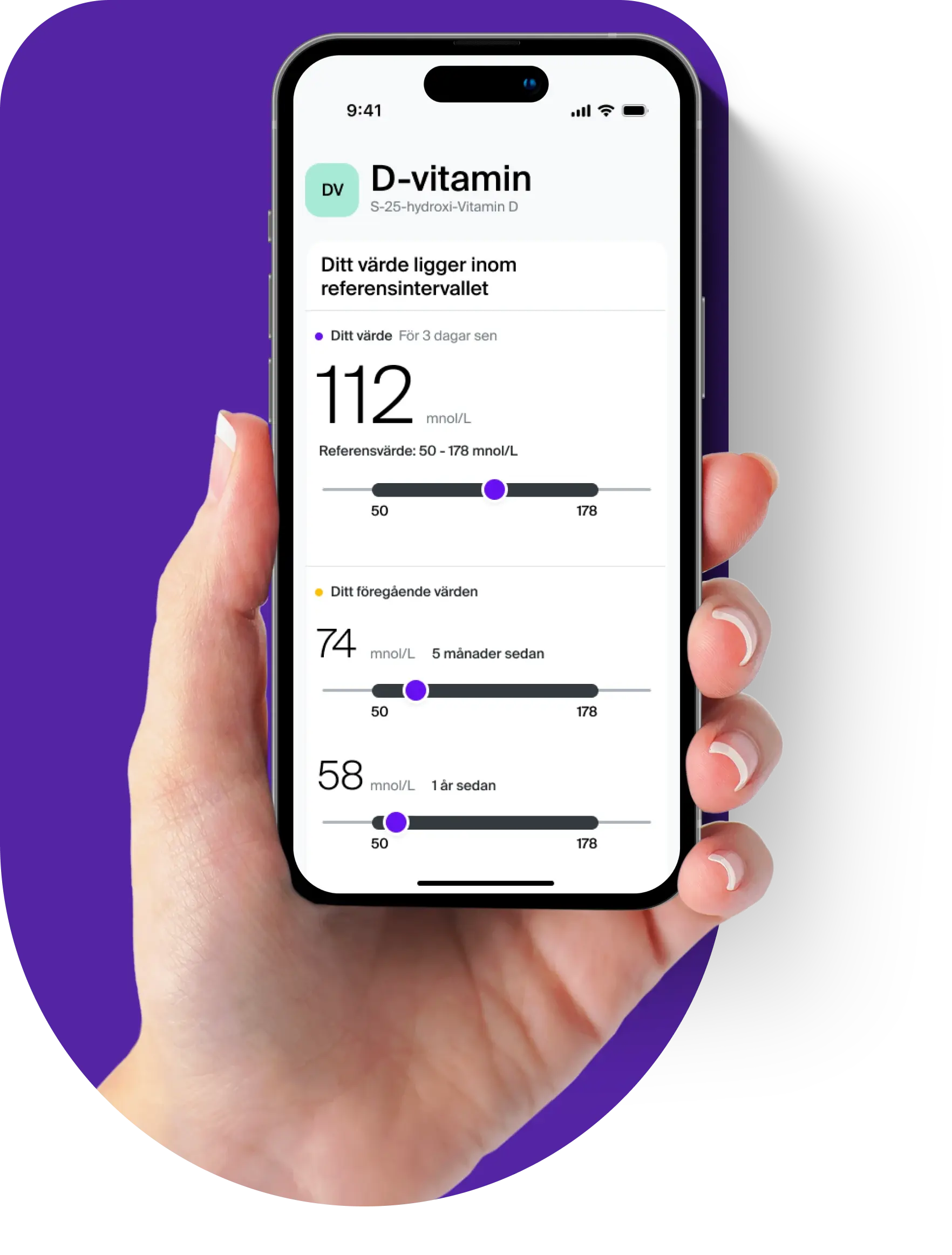Red blood cells
EPK Erythrocytes
How does the blood test take place?

- Measuring your EPK value (Erythrocytes).
- Analysis of your red blood cells.
- Gives you insight into your blood status.
Erythrocytes, also known as red blood cells, are responsible for transporting oxygen throughout the body. By analyzing your erythrocytes, you have the opportunity to assess your blood health and detect potential underlying health issues such as:
Anemia Evaluation: Identify or rule out anemia and help determine any causes, which is crucial for optimizing your health.
Oxygen Transport Capacity: Erythrocytes are vital for the body's ability to efficiently transport oxygen, necessary for energy production and vital functions.
Blood Quality: The analysis provides insights into your blood quality and any deviations that may indicate underlying diseases.
High levels can indicate polycythemia, which means you have an overproduction of red blood cells and can be caused by various factors, including chronic oxygen deficiency.
Low levels can be a sign of anemia, which may be related to a lack of iron, vitamin B12, or other underlying causes.
Erythrocyte analysis is also included with the purchase of a complete blood count.
Heart and blood vessel biomarkers are specific substances or indicators that can be measured in the blood to evaluate the health and function of the cardiovascular system. These biomarkers provide valuable information about the risk, diagnosis, and management of various heart and blood vessel conditions.
Before visiting a reception for sampling, you need to do the following:
Activate referral and select reception
To activate your referral, simply follow the instructions that you will receive via email after completing the purchase. The email contains an activation code, by clicking on the link in the email you enter the flow to fill in any information, activate the referral and select reception in the sample answer service zample.
Before the sampling
The referral is available digitally at the sampling unit after you activate it, follow the instructions you receive via email. Here you can read our guidelines before taking samples.
Get control of your health - four simple steps
Choose a health check or create your own by adding optional health tests to your cart.
After payment, you will receive an activation code via email. Log in via "My test results" or click on the link in the email, and use the code to activate the referral and choose reception.
You visit the chosen reception to do your test. Your referral is valid for 5 months after activation.
You will receive your test answers within 1-5 working days, the test answers are received continuously. Once all test results are received, they are reviewed and issued by a doctor.
With us you always get:
Qualitative analysis
To offer you the highest possible quality and service we collaborate with accredited laboratories and trained healthcare personnel.
Lowest possible price
Our vision is that as many people as possible should have the opportunity to improve their health. That's why we always strive to keep prices low.
Your needs – your choice
With us, you can always choose freely among all our health markers and design your own personal health check based on your needs.
Quick test results – reviewed by doctors
Within 1-5 working days you will receive your test results, these are reviewed and assessed by a doctor. In the event of significantly deviating test answers, you will be called. You can also make an appointment with a doctor for a personal review.
Add the health check or tests you want to carry out to the shopping cart, go to checkout and choose the payment option that suits you. After completed payment, we will send an email with an activation code for your referral. You use the activation code in the sample response service "My journal" to activate the referral and select the reception where you want to leave your samples.
Read moreWe collaborate with Sweden's leading laboratories, Unilabs, Karolinska and Synlab, as well as sampling clinics at Encia so that you as a customer get the highest possible quality. This is where you go for sampling performed by their experienced staff. The analysis is performed by authorized personnel at Unilabs, Synlab and Karolinska.
Read moreTo create your own referral select the specific markers you want to test for in the shopping cart. When you complete your purchase, a separate referral is created based on your choices.
Read moreIt usually takes 1-5 working days to get your test results, these are sent to you continuously as the analysis is done. The doctors comment will appear in the final report when all test results have been received, provided it is included in your analysis.
Read moreNo, blood tests do not replace contact with the healthcare system, which together with medical history, clinical examinations and possible blood tests can make a diagnosis.
Read moreYes, you can buy all tests and health checks with us for another person. After you complete a purchase, you will receive an email with an activation code. The activation code is not personal, which means that you can give the activation code to any person. The person who is to use the code needs to have a Swedish social security number or a valid reserve number.
Read more